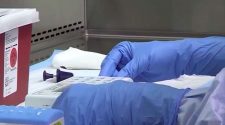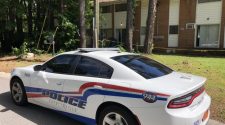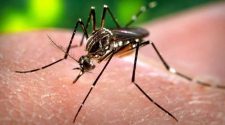AUSTIN (KXAN) — Austin Police are looking at ways to improve their tactics and performance when working with people experiencing mental health crises. Officers say there is room for improvement and city leaders agree, they want to fill in the gaps.
The Meadows Mental Health Policy Institute (MMHPI), contracted to provide a comprehensive overview of APD’s mental health performance, spoke at the Public Safety Commission meeting on Monday.
B.J. Wagner, the Senior Director of Smart Justice and Adult Policy, shared that APD receives more than 10,000 mental health calls a year on average.
Austin officers said they want to get better at handling each call on a daily basis.
“We are always striving to get more training and do a better job for the community we serve,” said Lieutenant Dustin Lee, the operations lieutenant for the downtown area command and an officer with the APD Crisis Intervention Team (CIT).
All APD cadets receive 40 hours of mental health training. Lt. Lee said after two years with the force, they can choose to receive an additional 40 hours of training to crisis intervention team officers. There are more than 150 CIT officers assigned to patrol for APD.
The public safety commissioners also asked City of Austin staff to share the findings of the September 2018 audit of APD’s response to mental heath-related calls, which revealed several areas for improvement. One flaw the city auditor’s office found was an occasional lapse in mental health professionals when needed. It’s an issue the city saw first-hand during Wednesday’s officer involved shooting.
Recent Mental Health Crisis
On Wednesday, four Austin police officers faced a man holding a knife inside the Spring Condominiums on Bowie Street downtown. Chief Brian Manley said the man was in crisis, and a mental health officer was requested to the scene.
KXAN learned the mental health officer was at a different crisis call and was heading to the scene, but by the time he arrived, the other responding officers had opened fire.
“Whether or not it would have made a difference in the outcome, we don’t know, but having those resources available will be helpful,” said Cary Roberts, the Executive Director for the Greater Austin Crime Commission.
“Incidents like these are rapidly-evolving, tense situations that officers respond to,” Lt. Lee said.
Professional Recommendations
The department hopes to create change soon. The MMHPI provided six recommendations aimed at improving policing for the mental health community. According to Police Chief Brian Manley, the recommendations were provided May 15, 2019.
Below is a list of the recommendations and the implementation status, according to a memo written by Chief Manley dated Aug. 2, 2019:
- Create a program and response advisory function within the existing Travis County Behavioral Health and Criminal Justice Advisory Committee.
- The Austin Police Department has been a long-standing member of this committee. We will present this report to the committee on August 9th and seek their input.
- Create a mental health crisis call identification and management training for call takers.
- This recommendation is under design by the APD CIT and CTECC leadership. An assessment of current training and draft of the new curriculum is due by September 2, 2019.
- Integrate mental health clinicians directly on the 911-dispatch floor to participate at an earlier triage point with call takers, divert calls to the most appropriate resources, and provide support and appropriate information to officers or medics on a scene.
- This recommendation builds upon an already existing plan under design by APD and Integral Care. The ability to continue this recommendation is dependent upon 2020 funding for Integral Care’s EMCOT program.
- Sustain the Expanded Mobile Crisis Outreach Team (EMCOT), including the use of Telehealth capabilities to expand immediate access to crisis screening.
- APD and Integral have already implemented the Telehealth portion of this recommendation and a pilot program began on 7/26/19. Its continuation, along with the partnership with EMCOT, is dependent upon 2020 funding.
- Coordinate the Austin Police Department’s Crisis Intervention Team activities with EMS’ Community Health Paramedic program in order to shift from a reactive to proactive orientation.
- The recommendation went on to state that APD should re-evaluate the practice of CIT officers conducting mental health outreach checks without having a behavior health, paramedic, or social services partner present. In response to this recommendation, the APD CIT amended their procedures to ensure that officers only conduct follow-up visits to mentally ill persons when they are accompanied by a licensed mental health clinician from Integral Care’s EMCOT program.
- Develop “what to do” educational materials in Spanish and Asian American languages so that constituents know what to tell first responders and what to do to ensure effective communication when first responders arrive on scene.
- Due to a long-standing collaboration with the National Alliance on Mental Illness (NAMI) this material already exists in English. APD CIT and the Office of Community Liaison (OCL) worked with NAMI and have completed the Spanish material. The same material is being translated into Vietnamese and it is anticipated that this material will be printed and available for distribution by October 2019.
Added Officers
At the proposed 2020 budget presentation on Monday, city manager Spencer Cronk said the budget adds 30 new police officers, as called for in the police department’s staffing plan. It is still unclear at this time which units those officers will report to.
“Over the past two years, some of our most critical conversations, pertaining to safety outcomes, have centered on determining the appropriate levels of police staffing and fire infrastructure,” Cronk said.
Also in the 2020 budget, Roberts said the city included 50 additional stipends for mental health officers.
“We are doing a great job, we are just trying to go the extra mile to make it even better for the community,” Lt. Lee said.















